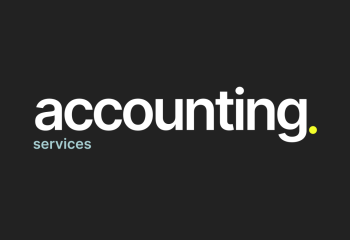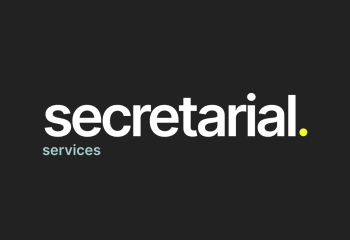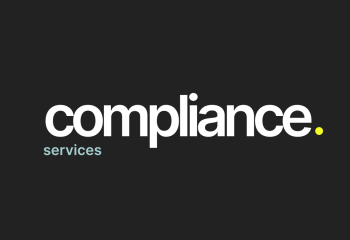2025 Draft of Vietnamese Bankruptcy Law – Part 4: Cross-Border Bankruptcy Procedures
Views: 1594
The Supreme People's Court has just introduced the Draft Law on Bankruptcy (amendments) (hereinafter referred to as "Draft 2025") to amend the Bankruptcy Law 2014 No. 51/2014/QH13 (hereinafter referred to as "Bankruptcy Law 2014"). ALTAS has studied the Draft 2025 (current version 1.0) to understand legal implications which will be presented below.
.png)
Cross-Border Bankruptcy Procedures under new Draft 2025
The proposed amendments to Vietnam's 2014 Bankruptcy Law include specific provisions to address cross-border bankruptcy cases, aiming to align with international standards and facilitate the handling of complex situations involving foreign entities or assets. These provisions cover both Vietnamese courts' involvement in foreign bankruptcy cases and foreign courts' involvement in Vietnamese cases. Key aspects of how the law addresses cross-border bankruptcy cases include:
International Cooperation: Vietnamese courts can request assistance from foreign courts or authorities, and vice versa, in bankruptcy cases that have an international dimension. This cooperation is based on international treaties to which Vietnam is a signatory, or on the principle of reciprocity (Article 152.1).
Recognition and Enforcement of Foreign Judgments: The law allows for the recognition and enforcement of bankruptcy decisions issued by foreign courts in Vietnam, provided that these decisions are legally effective in their country of origin and relate to assets of individuals or organizations within Vietnamese territory. This ensures that foreign creditors can claim assets in Vietnam and that Vietnamese courts can enforce bankruptcy decisions abroad (Article 158).
Requests for Assistance: Vietnamese courts can request assistance from foreign courts in various situations such as (Article 152.2):
o Identifying and valuate assets in foreign countries.
o Gathering information about a debtor's financial situation from foreign entities.
o Enforcing bankruptcy decisions in foreign jurisdictions.
o Requesting the payment of debts from those who owe money to a Vietnamese business.
o Other necessary requests that the judge or asset manager consider necessary.
Scope of Bankruptcy Representatives: The law allows for the appointment of bankruptcy representatives, and the court determines the scope of their powers and responsibilities in cross-border cases (Article153.3). This allows a clear path for someone to act on behalf of a business in a foreign country.
Assistance to Foreign Bankruptcy Cases: Vietnamese courts can assist foreign courts or bankruptcy representatives in their bankruptcy proceedings under certain conditions (Article
154). Foreign courts or representatives must submit a written request, along with necessary documents, and also pay the necessary fees (Article 156).
Grounds for Refusing Assistance: Vietnamese courts can deny a request for assistance if (Article 157.2):
o The applicant fails to pay the required fees.
o The applicant does not submit the required documents, or the documents are insufficient to show the legitimacy of the request.
o The request violates the fundamental principles of Vietnamese law, threatens national security, or infringes upon the rights of creditors within Vietnam.
Applicable Law: When dealing with foreign entities in bankruptcy cases, Vietnamese courts will apply the bankruptcy laws of Vietnam (Article 3.1). However, the courts can also consider international treaties that Vietnam is a signatory (Article 3.2).
Cost: Foreign entities requesting assistance with bankruptcy procedures in Vietnam must pay fees and litigation costs according to Vietnamese law, with the specific fees set by the National Assembly Standing Committee (Article 156.2). In summary, the Draft 2025 introduce a framework for handling cross-border bankruptcy cases that allows for cooperation, recognition of foreign rulings, and a clear path for foreign courts to request assistance in Vietnamese bankruptcy proceedings and for Vietnamese courts to request assistance in foreign bankruptcy proceedings. These changes seek to facilitate more efficient and fair outcomes in cross-border bankruptcy cases, while protecting the interests of domestic creditors and upholding Vietnamese law.
Validating Creditor Claims in Bankruptcy
A creditor's claim is considered valid when it meets specific criteria and is properly submitted within the legal framework of bankruptcy proceedings. Here's a breakdown of the key aspects that determine the validity of a creditor's claim, based on the sources:
Timely Submission: Creditors must submit their claims within a specified timeframe after a court has announced the initiation of bankruptcy proceedings. The standard period for submitting a claim is 30 days from the date of the court's decision to initiate bankruptcy proceedings. If necessary, the court may extend this deadline, but the extension cannot exceed 20 days (Article 115.1). For debts that arise after the initial claim deadline, creditors must proceed to declare within 30 days of the debt's origination (Article 115.4).
Proper Documentation: A valid claim must include sufficient documentation to support the existence and amount of the debt. Among others, this includes (Article 117.3):
o Details of the creditor such as name, address, and nationality.
o The total amount of the debt, including principal, interest, and any other associated costs.
o Information about any secured portions of the debt.
o Any supporting documentation, such as contracts, invoices, or other evidence of the debt.
o If the creditor is a representative, proof of their authority is also required.
Acknowledgment of Debt: The claim must be properly documented to show that the debt exists and that it is owed by the debtor.
Verification Process: After a claim is submitted, it is subject to a verification process. The asset manager is responsible for reviewing and verifying the validity of each claim. If the validity of the debt is not clear, the asset manager is responsible for requesting additional information or
documentation (Article 116.2).
Disputed Claims: If a claim is disputed, the court may convene a meeting to clarify the debt. If the claim is still disputed, the court will make a final decision on the validity and amount of the debt (Article 124.5).
Claims After Bankruptcy Declaration: If a creditor submits a claim after the court has declared the debtor bankrupt, but before the implementation of the decision is completed, the judge can review the claim and decide to add it to the list of creditors. The creditor must provide a valid
reason why they failed to file the claim in the specified period. If the judge decides the reason is valid, the claim may be added to the list of creditors (Article 116).
Claims in Simplified Procedures: In simplified procedures, the threshold for a valid creditors meeting is lowered to 51% of the total debt. This means that claims are still valid but their weight may vary due to the nature of the simplified procedure (Article142).
Claims in Foreign Bankruptcy Cases: If the creditor is part of a foreign bankruptcy case, they can claim assets in Vietnam if the foreign bankruptcy ruling is recognized by the Vietnamese court, and they must provide documentation to show the legal basis of their claim, along with the
necessary fees (Article 158). The Draft 2025 ensures a structured process for submitting and reviewing claims, allowing for proper assessment and inclusion in the distribution of assets.
ALTAS provides Legal Services related to Bankruptcy and Corporate Restructuring
Legal advice related to bankruptcy procedures such as: payment procedures, consequences, measures to handle assets, etc.;
Checking and evaluating the legality of contracts and due debts;
Representing clients in bankruptcy procedures, participating in negotiations with related parties
Legal advice related to corporate restructuring.
Conclusion
ALTAS LAW is committed to supporting investors and businesses during this volatile period. Please contact Partner Chris Luong at
chris.luong@altas.vn if you need further information or assistance.
Copyright © 2025 ALTAS LAW. All rights reserved. Ownership: This documentation and content (Content) is a proprietary resource owned exclusively by ALTAS LAW (meaning ALTAS LAW, ALTAS CORP and its member firms). Use of this Content does not of itself create a contractual relationship, nor any attorney/client relationship, between ALTAS LAW and any person. Disclaimers: The Content provided is for informational purposes only and may not reflect the latest legal or regulatory developments. Summaries of laws, regulations, and practices are subject to change. This Content does not constitute legal orprofessional advice for any specific situation and should not be relied upon as a substitute for reviewing and complying with applicable laws, rules, regulations, or official forms. Always seek legal counsel before making any decisions or taking any action based on this Content. ALTAS LAW, along with its editors and contributing authors, make no guarantees regarding the accuracy of the Content and explicitly disclaim any liability for any consequences resulting from actions taken, allowed, or omitted, whether fully or partially based on any part of the Content. The Content may include links to external websites, and external sites may also link to it. ALTAS LAW is not responsible for the content or functionality of any such external websites and disclaims all liability for any issues arising from their content or operation. Please note: Past results do not guarantee similar outcomes.
Written: Luong Van Chuong - Partner Lawyer at ALTAS Law & Dang Thi Ngoc Lan - Legal Senior Assistant
Date: 27/02/2025














.png)











![?️ [ALTAS TALK IS COMEBACK | SERIES: “TAX MATTERS 2025”] ?️ [ALTAS TALK IS COMEBACK | SERIES: “TAX MATTERS 2025”]](thumbs/210x144x1/upload/news/altas-talkintro-7705.png)



